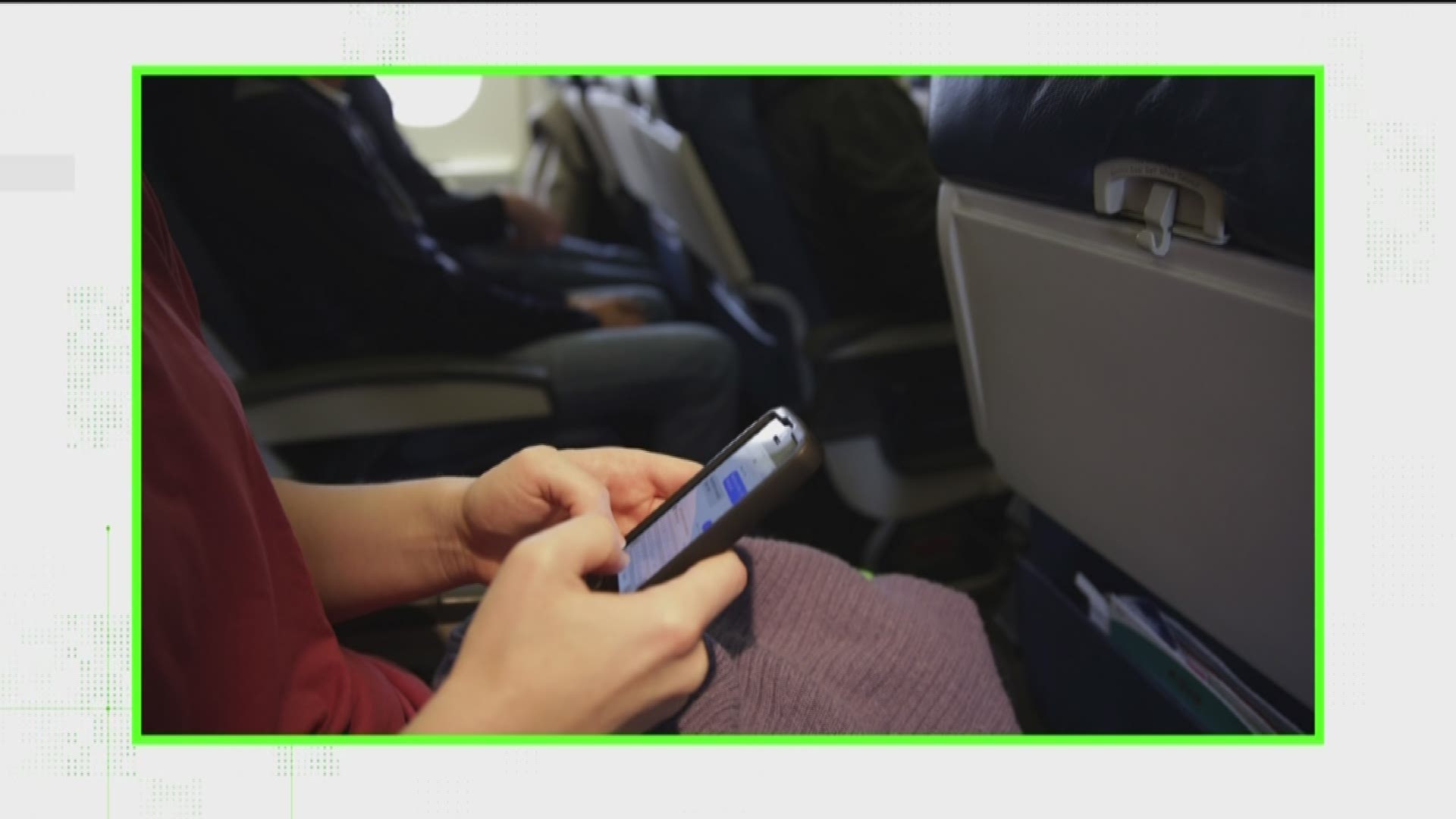SAN DIEGO —
If you’re a frequent flyer, you know the drill when it comes to turning off electronic devices. But is there a point to powering down your phone or putting it in airplane mode? And what would happen if you didn’t?
News 8’s Kelly Hessedal looked to answer these questions in this VERIFY report.
First up: Is it true that leaving your phone or electronic device on affects the flying instruments?
The FAA says yes. But there's no hard evidence on this. NASA put together a report last year and found a small number of incidents where personal electronic devices “may" have interfered with airplane instruments during the flight and during landing.
The bottom line: airlines don’t want to take any chances. Almost all personal electronics - including cell phones, tablets and laptops - emit radio waves. If those radio waves have a frequency very similar to those used in navigational equipment, then in theory, there could be interference.
The ban on cell phones was put in place decades ago as a precautionary measure. Older 2G or second-generation wireless technology cell phones were notorious for interfering with other electronic systems. With new cell phones hitting the market every year, it would be impossible to test how each and every model might interfere with the systems on each airplane.
However, many have asked if there has been a plane crash because a cell phone was left on? The answer to that is no.
It's also important to note technically it's the FCC, not the FAA that bans the use of cell phones on planes - and it’s not just for safety reasons. Using your phone could interfere with cell phone networks on the ground.
When you're 40,000 feet in the air, your phone could pick up service from multiple cell towers on the ground, which could crowd the networks and disrupt service.

